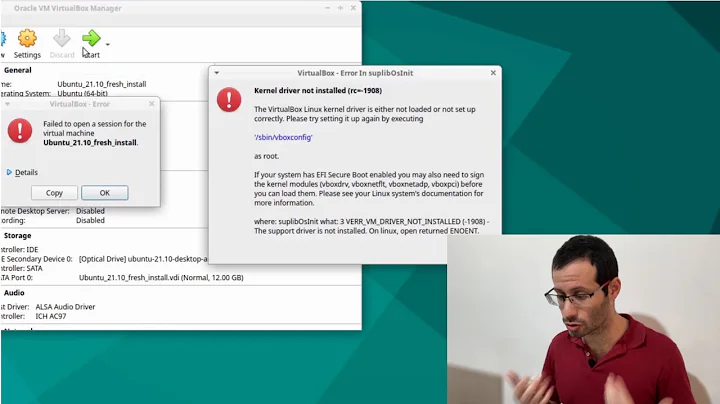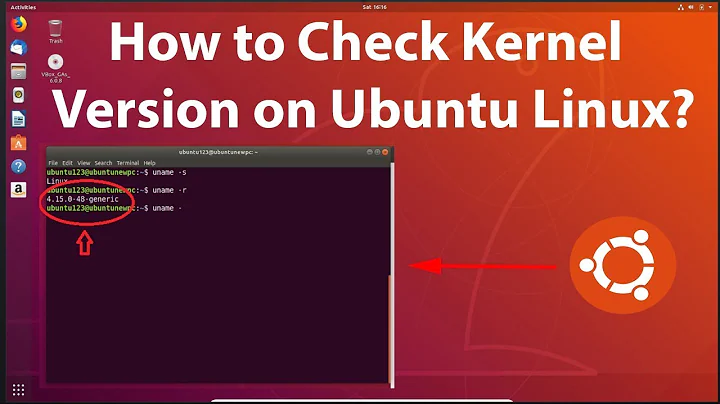Why kernel version doesn't match Ubuntu version in a Docker container?
From What is Docker?:
LIGHTWEIGHT
Containers running on a single machine share the same operating system kernel; they start instantly and use less RAM. Images are constructed from layered filesystems and share common files, making disk usage and image downloads much more efficient.
Containers run on the host OS kernel. In your case, the host could be a Ubuntu 14.04 (running the original kernel) or a Ubuntu 12.04 (running kernel from trusty's hardware enablement stack).
If the host is Ubuntu 14.04 you could install kernel 3.16:
sudo apt-get install linux-generic-lts-utopic
Or kernel 3.19:
sudo apt-get install linux-generic-lts-vivid
For Ubuntu 12.04, kernel 3.13 is latest official one.
Related videos on Youtube
jcm
Updated on September 18, 2022Comments
-
jcm over 1 year
I have a Docker container built from Ubuntu 14.10. When I log in to the container to check the Ubuntu version and kernel version I see the following:
root@~$>> lsb_release -a No LSB modules are available. Distributor ID: Ubuntu Description: Ubuntu 14.10 Release: 14.10 Codename: utopic root@~$>> uname -a Linux ambiata-aws 3.13.0-24-generic #47-Ubuntu SMP Fri May 2 23:30:00 UTC 2014 x86_64 x86_64 x86_64 GNU/LinuxI thought that Ubuntu 14.10 was supposed to be kernel version 3.16 (as stated here), so why do I have kernel version 3.13.0-24-generic ?
The reason I am asking is because there is a patch in 3.13.0-29-generic that I would like to have (that is, having fallocate working on AUFS in my docker container) which is discussed here.
-
saiarcot895 almost 9 yearsIs the container running on Ubuntu Trusty? If so, that would be why.
-
-
jcm almost 9 yearsDo you mean I would have to upgrade the host kernel? There's no way to just upgrade the container's kernel?
-
 Eric Carvalho almost 9 years@jcm There's no kernel inside a container. Even if you install a kernel, it won't be loaded when the container starts. The very purpose of a container is to isolate processes without the need to run a new kernel. That is also why containers are restricted to Linux. If you need to run another OS or another kernel version you have to make use of virtualization.
Eric Carvalho almost 9 years@jcm There's no kernel inside a container. Even if you install a kernel, it won't be loaded when the container starts. The very purpose of a container is to isolate processes without the need to run a new kernel. That is also why containers are restricted to Linux. If you need to run another OS or another kernel version you have to make use of virtualization.







